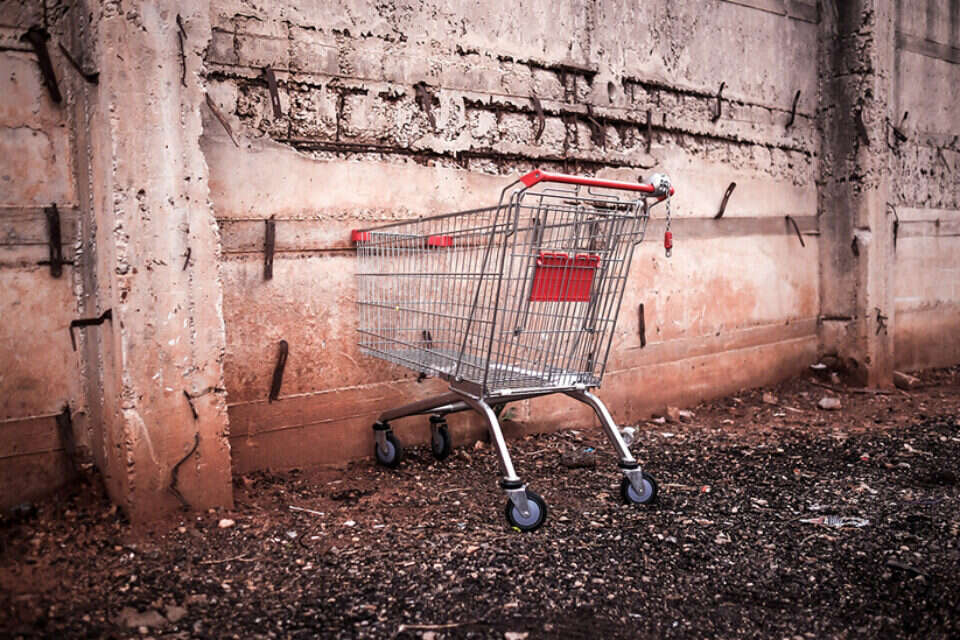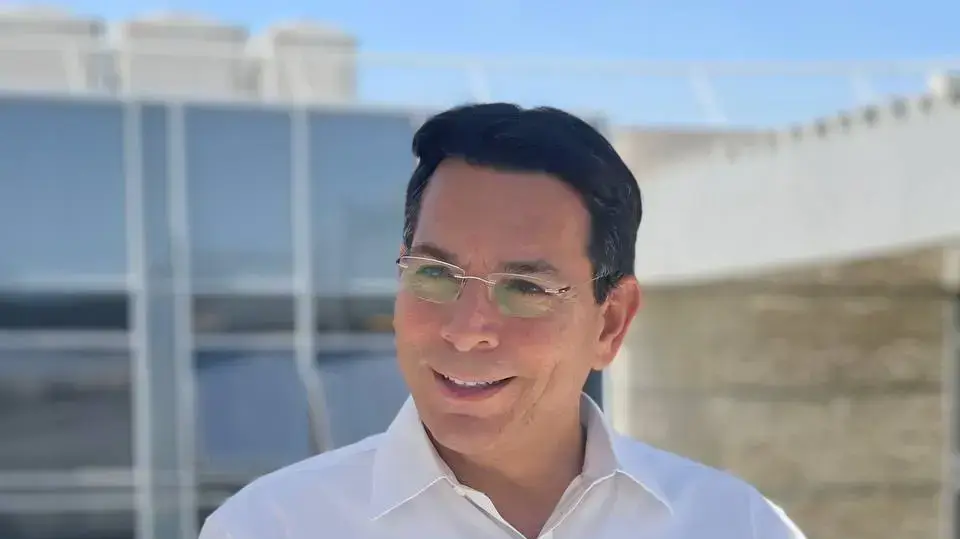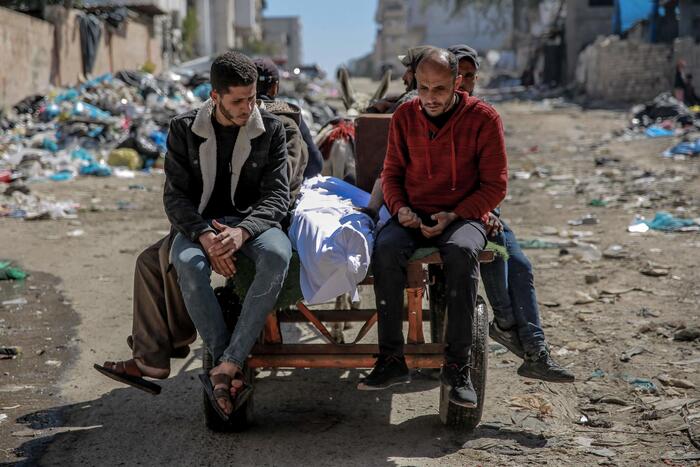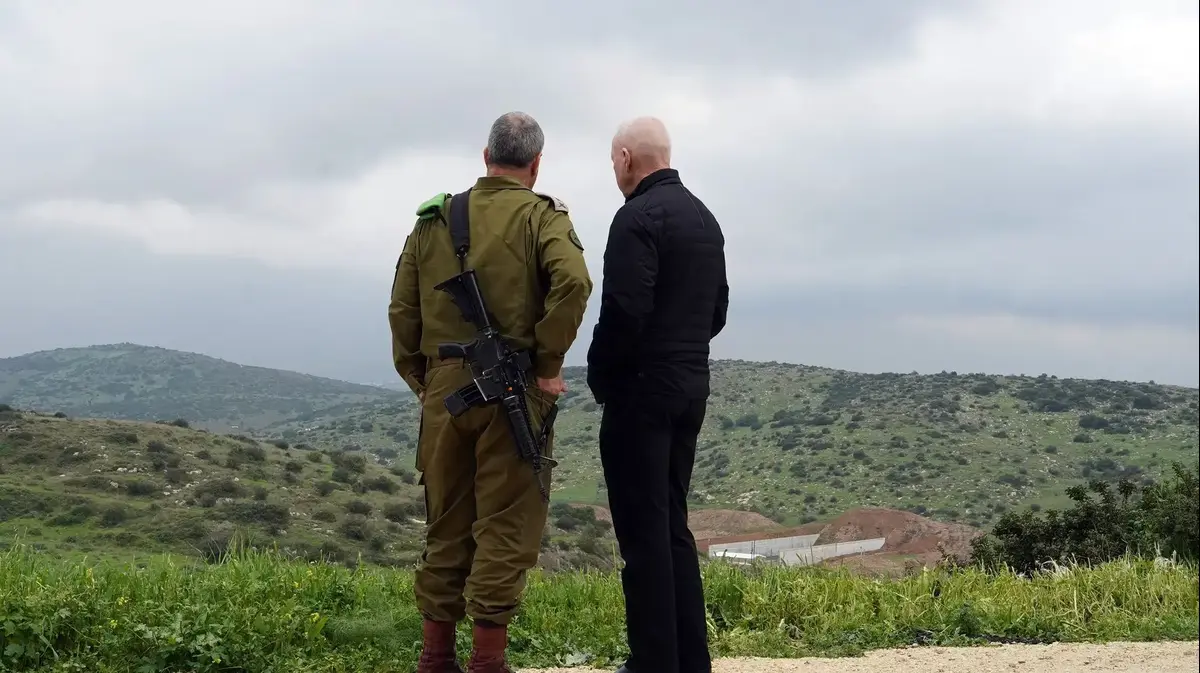"There are really no poor people in Israel, except for a few relief cases of old people and people who are physically unable to work. Anyone who wants to work today and not indulge - will find a job. Every year the newspapers publish the official and alternative poverty reports, and it's like science fiction.
Because if they were true, then where are all the children walking around hungry for bread in the streets?
Where are all the million-two million poor?
"Obviously there are people who have a hard time financially, but in the end it's because they don't have the ability to manage their finances properly, or they waste the money on alcohol, drugs and nonsense, and then complain that they don't have money for an iPhone 14. Not to mention the populations who consciously choose to be poor, like the ultra-Orthodox - that for them it is perfectly fine to have many children, to study Torah and to conduct themselves according to the economic plan Hashem Yerahem, or all kinds of unemployed social security workers who sit in cafes, instead of going to work and doing something with their lives.
"Not to mention all these patriarchal Arabs or Bedouins, who don't allow women to study or work, so they must be poor, but by choice! Still, go to Rahat, or to all these 'poor' settlements and look at how many shiny new nylon jeeps are driving around there. The poverty report is a joke.
There are a lot of people who get rich from poverty, they say about the ultra-Orthodox that they leave their audience in poverty, and the associations don't? And all the aid associations? Do you think that one day they will close the Basta and say - friends, thank you, we don't need any more donations, we managed to achieve our goal? Did you hear that? Have you ever heard of an aid organization or association that was ever closed due to success in their mission?"
At the end of the year, the alternative poverty report of the Letat organization was published, and the numbers are alarming. Add the increase in interest rates, the rising prices of housing, food, electricity and water, compared to the salaries that are lagging behind - and here the economic situation resembles a musical glacier game. The last to hurry and get a seat will find the themselves drifting into the cold sea across a melting glacier without being able to return, but in the new world, where everything is subject to the scrutiny of reason, everything is subject to doubt, and poverty is also questioned.
It is likely that the degree of agreement or rebellion in front of the things you have just read is probably related to your distance from the poverty line.
And yet, as much as the economic theory of one of my acquaintances sounds far-fetched at first, did you really have answers to all the questions and doubts he raised?
In order to understand the connection between the poverty report and poverty in Israel and the reality, I met with someone who already at the beginning of the conversation confessed - "My second name is poverty.
Maybe this is how you should introduce me - Prof. Michal 'Ooni' Kromer-Nevo," she laughs.
Prof. Cromer-Nevo from the Department of Social Work at Ben-Gurion University studies poverty.
She wrote policy documents that the Ministry of Social Affairs adopted, and her book, "Radical Hope: A Poverty-Aware Practice in Social Work", was recently published by Pardes.
So what is poverty, I asked her.
"True poverty is a lack of opportunities. With the opportunity for health services, good housing, good education, it is a lack of opportunities for respect and social value. The fact that you 'don't see the poor' is not because you don't know how to look, but because you don't want to look.
"Even in conservative terms, poverty is measured in Israel more severely than in the OECD countries. They measure it by 60 percent of the disposable income per capita, we by 50 percent. Which means that it is more 'difficult' to be considered poor in Israel than in other countries. If we were to adopt the accepted definition , were much poorer in the report.
At the same time as the numbers, it's a shame that we don't talk about the index of the depth of poverty, that is, if your distance from the poverty line is NIS or thousands of shekels, and in Israel the average depth of poverty is 33 percent lower than the line, meaning that many of those below the line are deep below it."
I raised with Prof. Cromer-Nevo the question that many raise - if these are the data, where are the hungry children?
"It is a mistake to identify poverty with hunger. Hunger is the most extreme example of poverty, when a person has nothing. Hunger is a basic and primary need that we need to satisfy. There are children who live on bread and chocolate for spread. They may not be hungry, but they are not eating healthy, this is food that does not nourish".
Prof. Cromer-Nevo wants to dispel the myth that if the poor are given allowances instead of food stamps, "they will use it for alcohol and drugs."
"It's a common opinion related to the fact that people always look for the qualities of the poor that are 'to blame for being poor', to say 'here, these are the things that produce their poverty'. But poverty is not a product of character traits, but of social and systemic difficulties.
"Poverty is the product of failures in the employment market, in the education system, in the health system, in the housing system, in the welfare system. It is a series of social failures that lead certain people to this situation. But most of the poor are normative. They do not use drugs, do not drink alcohol, do not have many children and from the lack of housing. Blaming the poor for poverty serves the policy that prefers to strengthen the rich, and not reduce the social gap. Because that way you can always blame the poor, that by being poor it's proof that they didn't do enough to get out of their situation."
I asked why poverty was not "more visible" to the eyes, and Prof. Cromer-Nevo explained that it was actually a deliberate concealment.
"Like anyone else, people in poverty are very concerned about their dignity, and most of the poor do not want their plight to be seen. They do not want to be considered 'poor', and they do everything they can to avoid being seen in this situation. It is true that there are people who in very difficult situations will agree to be exposed , like he was on the Uncle Topaz show where he went to help the poor for ratings. But generally, people living in poverty are busy trying to hide it, and that's one answer to why it's hard to see. The other answer is that no one wants to see it. You see The cafes are full, you don't see the workers in the kitchen."
Is the world actually producing more "hidden poor" today, I wondered.
"It produces more the inability to see," says Prof. Cromer-Nevo, "there are so many stimuli and exciting things that mask, and that's why I developed the concept of awareness of poverty, which is an entire paradigm that the Ministry of Welfare has adopted. This concept says that poverty is a violation of Human rights, which is reflected in the failure of all these social systems and in the right to respect.
"People in poverty are actively resisting poverty all the time, and they are really not passive. They are trying to improve their housing, their education and their health, and they are also trying to hide poverty to maintain their self-respect. Thus, in fact, all the systemic failures that create poverty Become hidden from view Social workers need to get closer to people and hear their story, be active in understanding poverty and their ability to treat it.
"We are brainwashed in the context of poverty, and this brainwashing makes it difficult for us to understand what poverty is, and makes it difficult for us to see the failures of the system that lead to it. Poverty should be a situation that people reach as a result of life crises - the business didn't go well, you get fired, someone dies, divorce , things that happen. In such a situation, poverty is only a phase that you can also get out of. Poverty should not be a permanent situation, where neither you nor your children can get out of it.
"What we see in Israel is that certain groups are in poverty for generations and for a long time, and do not get out of it. It's not that the Arabs and the ultra-orthodox and the Mizrahim and the development towns are poor because they made Kabbalah committees for these groups, and chose to admit only the poor. The fact that poverty continues and remains in those groups only strengthens the The insight that this is the result of a systemic failure, and not the failure of a specific group."
were we wrong
We will fix it!
If you found an error in the article, we would appreciate it if you shared it with us





/cloudfront-eu-central-1.images.arcpublishing.com/prisa/LK4BWLOG5F4TALNACDXUI4NVI4.jpg)



/cloudfront-eu-central-1.images.arcpublishing.com/prisa/KMEYMJKESBAZBE4MRBAM4TGHIQ.jpg)


/cloudfront-eu-central-1.images.arcpublishing.com/prisa/EXJQILQR5QI7OMVRTERD7AEZAU.jpg)
